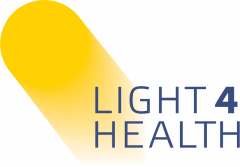THE SECOND ERAMUS SCHOOL OF THE INTERNATIONAL PROJECT LIGHT4HEALTH
Topic: Lighting for Working and Educational Environments.
The second L4H summer school will be structured around different lighting needs of different user groups in the context of working and educational environments. It will provide mindsets, background and history of health research on light in working and educational environments (with focus on stress and learning abilities in different lighting situations).
Students will be prepared for designing solutions for offices and classrooms in different geographical zones and climatic conditions. The module will be structured in three parts:
1. Review on standard Light & Health research topics, including: i. Psychology of Light: – How Light affects humans on a Psychological Level (Color and temperature and culture) ii. The wide range of Physiological effects of Light on the Human Body – Light and Circadian Systems – Light’s effect on our Circadian Rhythm and melatonin production – Light and the Aging Eye iii. Potential Dangers of Light – The unknown factors of Solid State Lighting and its long-term effects on the body
2. Basic Health Research Methods and Standards of Health Data Collection and Interpretation, based on ongoing verified research in: – Photobiology – Neurology – Neuroendocrinology – Neurobehavioral Studies Psychophysiology of Perception – Behavioural Psychology – Cognitive Psychology – Environmental Psychology
3. Practical exercises on how to use various health research methods and modern equipment: From basic research processes to evidence based design.
All three elements will be explained in the case-studies and other material relevant to working and learning/teaching environments.
The school aims to develop knowledge in both conceptual and practical aspects of health research and design. It will require students to experiment with research methods in various settings, which are intended to enable students to think beyond their subject specialism and to develop collaborative skills.
